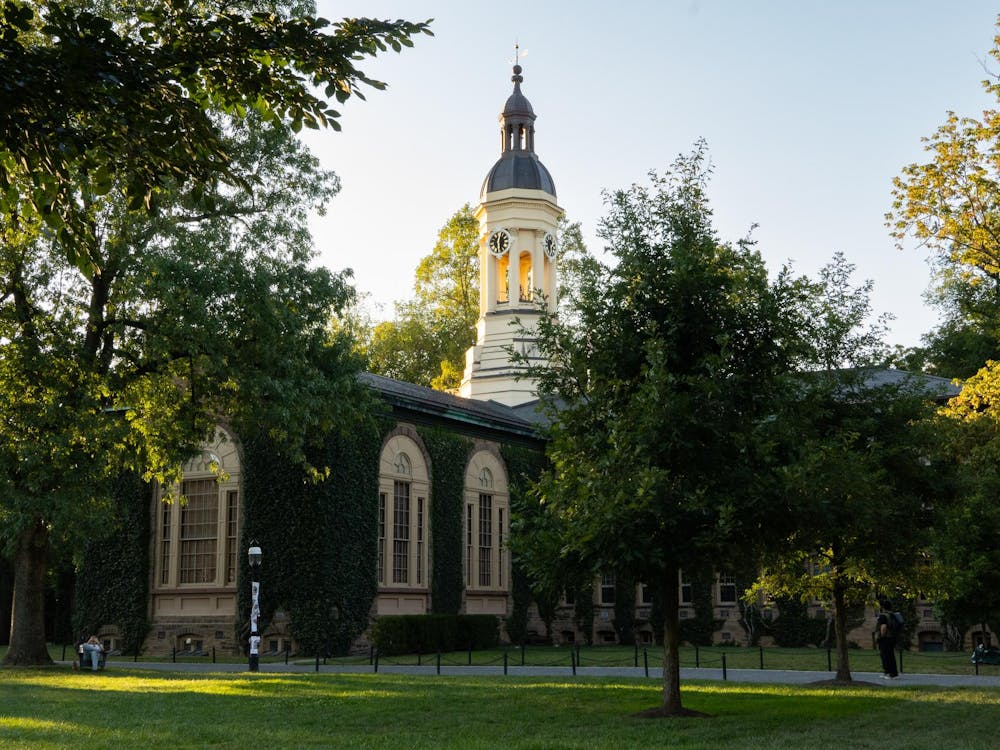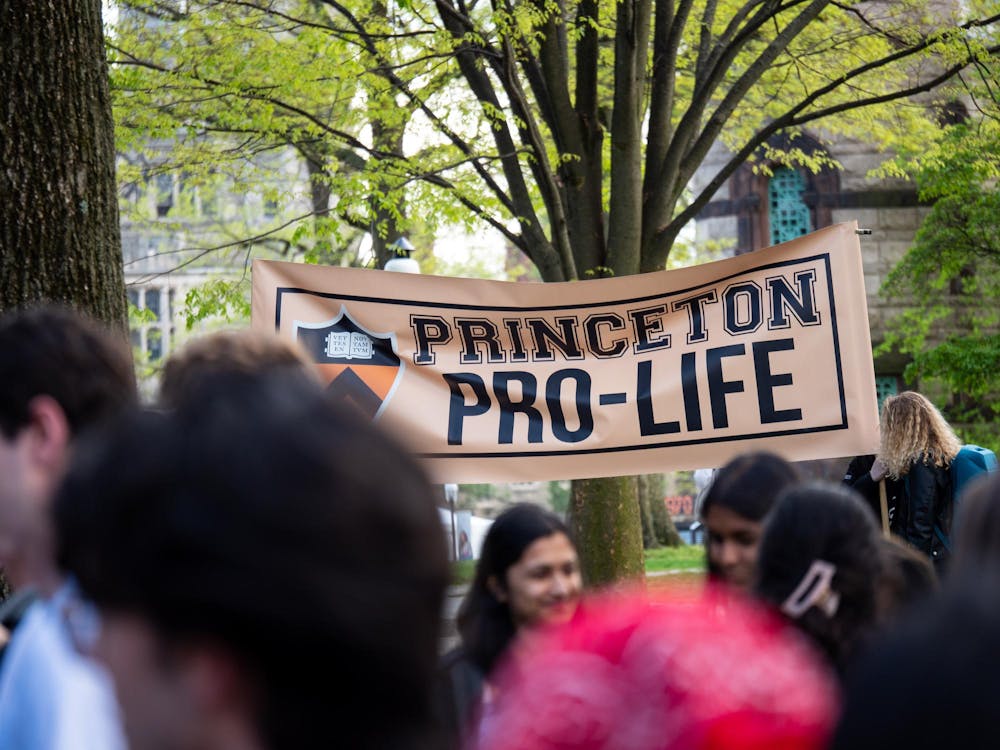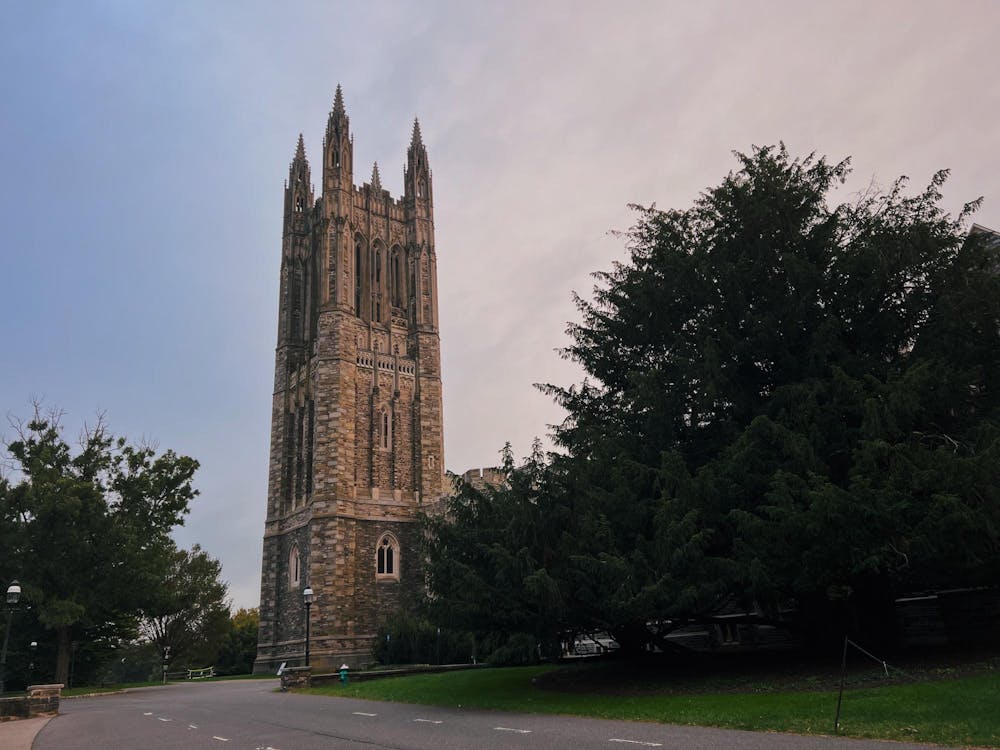Four graduate students were named winners of the Porter Ogden Jacobus Fellowship, Princeton’s top honor for graduate students, the University announced Friday.
The students, James Pickett GS, Emily Vasiliauskas GS, Sonika Johri GS and Cristina Domnisoru GS, will receive funding for their final year of graduate study.The fellowship is awarded to those whose work has exhibited the highest scholarly excellence.
Pickett, a Ph.D. candidate in the history department, has studied Islamic scholars of central Eurasia from the 18th and 19th centuries. His research bridges Persian, Islamic and Russian history.
“The goal is to write a transregional history that’s not really the history of any one particular quality,” Pickett said.“This is an area of history that hasn’t really been studied at all.”
He added that people in other, better-studied areas of history “are refining very small questions and developing a very sophisticated understanding of history. But central Asia is in many ways a blank slate.”
“A lot of the things we take for granted about modern nation states and modern societies simply didn’t work the same way back then,” Pickett said. As an example, he cited the fact that scholars educated in the city of Bukhara would travel throughout the surrounding regions to perform research and various jobs. “Even though we think of India, Afghanistan and Russia as very different places, they had a common high cultural skill set,” he said. “That doesn’t really have much parallel. It offers lessons for global history.”
Vasiliauskas, a Ph.D. candidate in the English department, is researching the concept of a literary afterlife in early 17th-century England.
“The word 'afterlife' was first used in English in 1598 to mean a posthumous literary legacy, rather than anything about a theological afterlife,” she said.
Her work, she said, charts “how what we now think of as a religious concept started out as secular and became religious over time." She added that her work also deals with the more familiar concept of authors seeking literary immortality through their work.
Vasiliauskasexplained that her work takes lessons from the politically-minded interpretation of literary studies that sprang up in the 1980s toward a more mystical focus, which was a more prominent approach in the 1960s and 1970s
“Now, people are realizing that different cultural artifacts … have a temporal force in their own culture that can be much more unfamiliar and weird and even politically significant than just the activities of kings and queens are," she said.
Johri, a Ph.D. candidate in electrical engineering, studies two aspects of solid state physics: disordered systems and strongly interacting systems.

She said that although it can be very easy to study electron flow through highly ordered crystals, this is not the case with nature.
“In nature, nothing is ever perfect. In real material, atoms will not be exactly in their places. There will be a lot of disorder,” she said. “This leads to all kinds of effects, especially in quantum mechanics.”
She also studies strongly interacting systems, in which large numbers of electrons interact with each other. “Everything depends on everything else," she explained. "That’s a very hard problem. How do you solve that? You can’t do that with pen and paper.”
Johri said she hopes her work will help lead to the development of a quantum computer. Her work in topological quantum computing is potentially more stable than the approaches of other researchers, she said. “You need a big, big amount of disorder … to destroy this qubit [quantum bit]. It’s very robust,” Johri said.
Domnisoru, a doctoral student in the Program in Neuroscience, studies circuit mechanisms within the entorhinal cortex, an area of the brain associated with memory. “In humans, there’s always been a recognized link between space and memory,” she said.
“Right now, as a field, we’re still talking to ourselves,” she said. “We’re trying to understand how neurons communicate with each other.” She said that her research will most likely help further our theoretical knowledge of how the brain works and that potential applications for her research are still uncertain.
Domnisoru also said that she has a more humanistic interest in neuroscience. “What we’re all trying to do is to understand ourselves,” she said. “Trying to do neuroscience, trying to figure out how the brain works is kind of like practical philosophy. People have wondered, for a long time, how their own minds work. That’s the ultimate goal.”
Pickett, Vasiliauskas, Johri and Domnisoru all plan on pursuing careers in academia.
Clarification: An earlier version of this article described Vasiliauskas' work as 'apolitical.' She clarified that it is simply less politically-minded than the approach that emerged in the 1980s.








